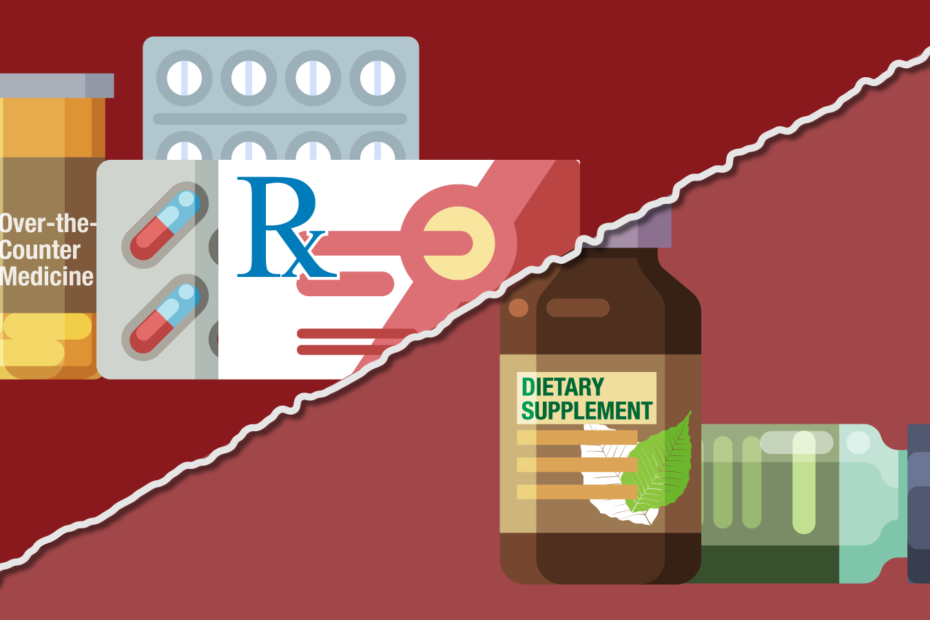Are you curious about whether or not the supplements you’re taking can interact with your prescription medications? It’s a valid concern! In this article, we’ll dive into this topic and provide you with the information you need to know. Understanding the potential interactions between supplements and prescription medications is essential for your health and wellbeing. So, let’s explore this subject together and find out what you should be aware of.
In this article, you’ll learn more about the possible interactions between supplements and prescription medications. We’ll discuss why these interactions can occur and the risks involved. It’s vital to be informed about how different supplements can affect the effectiveness and safety of your prescription medications. By understanding this, you’ll be able to make informed decisions about your health and ensure that you are taking your medications and supplements safely. So, keep reading to get the answers you’re looking for and to make sure you’re properly managing your health.
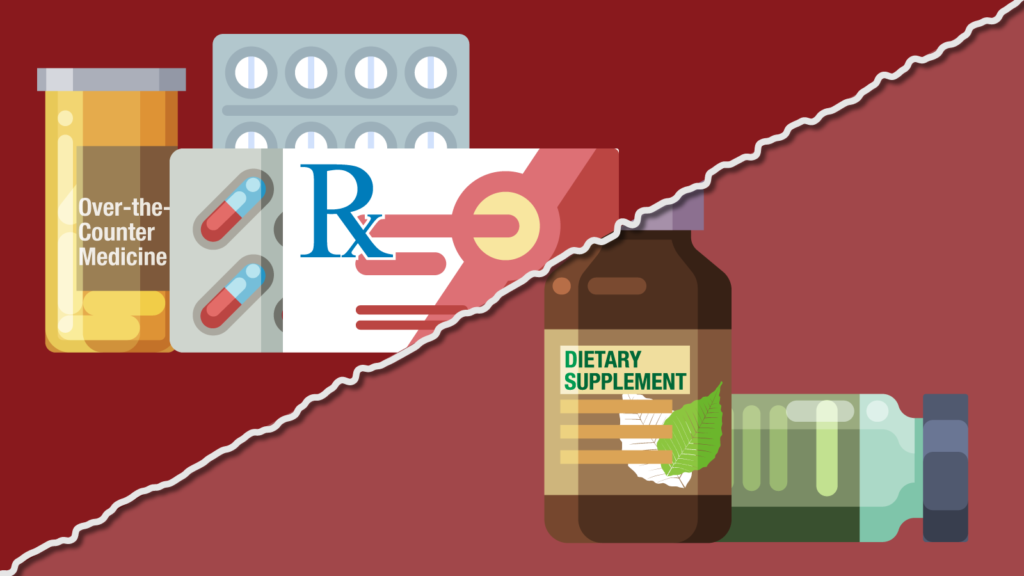
This image is property of www.fda.gov.
Understanding Drug Interactions
Types of Drug Interactions
When you take multiple medications or supplements, there is a possibility of drug interactions. Drug interactions occur when the effects of one drug are altered by the presence of another drug. There are different types of drug interactions, including drug-drug interactions, drug-food interactions, and drug-supplement interactions.
Mechanism of Drug Interactions
Drug interactions can occur through various mechanisms. One common mechanism is the inhibition or induction of drug-metabolizing enzymes in the liver. Certain drugs or supplements can either slow down the metabolism of other drugs, leading to increased levels and potential side effects, or accelerate the metabolism, resulting in reduced effectiveness. Another mechanism is competition for the same receptor site, where one drug or supplement may inhibit the action of another.
Factors Contributing to Drug Interactions
Several factors can contribute to drug interactions. These include the dosage and frequency of medication or supplement use, the individual’s metabolism and liver function, the duration of treatment, and the presence of underlying medical conditions. It is important to be aware of these factors to prevent potentially harmful interactions.
Interactions between Supplements and Prescription Medications
Common Supplement-Drug Interactions
Some supplements have known interactions with specific prescription medications. For example, St. John’s Wort, a popular herbal supplement used for mood disorders, can reduce the effectiveness of certain antidepressant medications by increasing their metabolism. Similarly, fish oil supplements, which are rich in omega-3 fatty acids, may interact with blood-thinning medications and increase the risk of bleeding.
Examples of Problematic Combinations
Certain combinations of supplements and prescription medications have been identified as potentially problematic. For instance, the combination of ginkgo biloba and blood-thinning medications can increase the risk of bleeding. Additionally, the use of garlic supplements with anticoagulant medications may lead to an increased risk of bleeding as well.
Interactions with Specific Supplement Categories
Different supplement categories can also interact with prescription medications. For example, herbal supplements, such as ginseng and echinacea, may interact with immune-suppressing medications and affect their effectiveness. It is important to be cautious when combining supplements from these categories with prescription medications to avoid any potential interactions.

This image is property of medshadow.org.
Evaluating Potential Interactions
Consulting a Healthcare Professional
To evaluate potential interactions between supplements and prescription medications, it is important to consult with your healthcare professional. They have the necessary expertise to review your medication list and assess the risks of potential interactions. They can provide guidance on whether certain supplements are safe to take alongside your current medications.
Reviewing Package Inserts and Drug Labels
Another way to evaluate potential interactions is by reviewing the package inserts and drug labels of both the supplements and prescription medications. These inserts often contain information about potential drug interactions. Be sure to read these carefully and consult with your healthcare professional if you have any concerns or questions.
Online Resources for Drug Interaction Checking
There are numerous online resources available that can help check for potential drug interactions. Websites and apps specifically designed for this purpose allow you to input your medication and supplement regimen to generate a comprehensive report of possible interactions. However, it is important to use reputable sources and consult with your healthcare professional for expert advice.
Minimizing the Risk of Interactions
Informing Healthcare Providers
To minimize the risk of interactions, it is essential to inform all your healthcare providers about the medications and supplements you are taking. This includes doctors, pharmacists, and other healthcare professionals. They can provide you with guidance and monitor your medication regimen to ensure the utmost safety and effectiveness.
Proper Medication Management
Proper medication management is crucial in reducing the risk of interactions. This includes taking medications as prescribed, adhering to recommended dosages, and avoiding self-adjustment of medication regimens without consulting your healthcare professional. Additionally, it is important to store medications appropriately and dispose of expired or unused medications properly.
Timing and Dosing Considerations
Timing and dosing considerations can also help minimize the risk of interactions. Some medications and supplements may need to be taken at specific times or with certain foods to optimize their effectiveness. It is important to follow the instructions provided by your healthcare professional and read the product labels of both medications and supplements carefully.
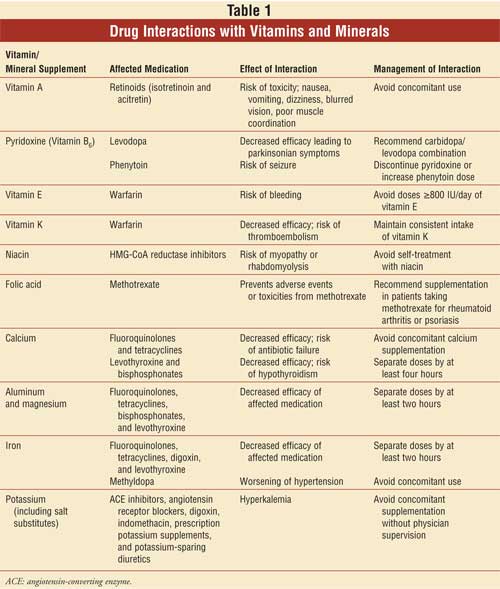
This image is property of www.uspharmacist.com.
Specific Supplement-Drug Interactions
Grapefruit and Prescription Medications
One specific supplement-drug interaction to be aware of is the interaction between grapefruit and certain prescription medications. Grapefruit contains compounds that can inhibit the enzymes responsible for metabolizing medications in the liver. This can lead to increased levels of the medication in the body, potentially causing adverse effects. It is important to check with your healthcare professional if you consume grapefruit or its juice regularly.
St. John’s Wort and Prescription Medications
As mentioned earlier, St. John’s Wort can significantly interact with certain prescription medications, particularly those used for treating depression and anxiety. Its enzyme-inducing properties can reduce the effectiveness of these medications. Therefore, it is important to avoid using St. John’s Wort concurrently with these medications unless specifically instructed by your healthcare professional.
Fish Oil and Prescription Medications
Fish oil supplements, often taken for their potential cardiovascular benefits, can interact with blood-thinning medications. Fish oil’s natural blood-thinning properties can enhance the effects of these medications, increasing the risk of bleeding. It is vital to inform your healthcare professional if you are taking fish oil supplements while on blood-thinning medications.
Case Studies: Real-Life Examples
Negative Interactions and their Consequences
There have been cases where individuals experienced negative interactions between supplements and prescription medications. For example, some individuals taking ginkgo biloba and blood-thinning medications have reported increased bleeding tendencies. These interactions emphasize the importance of being cautious when combining supplements and medications.
Success Stories of Coordinated Supplement and Medication Use
On the other hand, there are success stories of coordinated supplement and medication use. Some individuals have found that certain supplements complement their medications and provide additional health benefits. These individuals have worked closely with healthcare professionals to find the right combination and dosage, resulting in improved overall well-being.
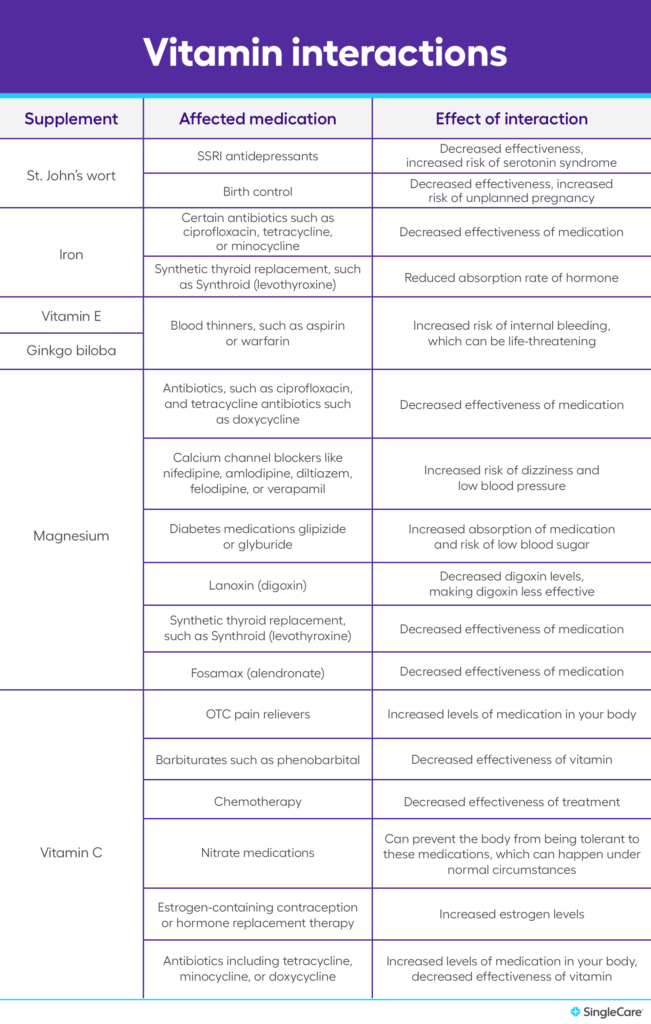
This image is property of www.singlecare.com.
Recognizing Signs of Interaction
Symptoms of Potential Drug Interactions
Recognizing the signs of potential drug interactions is crucial for timely intervention. Some common symptoms include increased or unexpected side effects, changes in the effectiveness of medications, changes in vital signs, and unexplained new symptoms. If you experience any of these symptoms, it is important to contact your healthcare professional for further evaluation.
When to Seek Medical Attention
If you suspect a severe drug interaction or experience severe symptoms, it is important to seek immediate medical attention. This can include symptoms such as difficulty breathing, severe allergic reactions, chest pain, or other life-threatening symptoms. Do not hesitate to call emergency services if necessary.
Navigating the Regulatory Landscape
FDA’s Role and Labeling Requirements
The U.S. Food and Drug Administration (FDA) plays a crucial role in regulating prescription medications and certain aspects of the supplement industry. The FDA ensures that prescription medications are thoroughly tested for safety and effectiveness before they can be marketed. However, it is important to note that the FDA does not have the same level of regulation for supplements. Therefore, it is essential to be cautious when considering supplement use, especially in combination with prescription medications.
Supplement Quality Control
Supplement quality control is an important consideration when using supplements alongside prescription medications. While the FDA does have some regulations in place, supplement manufacturers are not required to prove the safety or effectiveness of their products before they are marketed. It is important to look for supplements that have been third-party tested for quality and adhere to good manufacturing practices.
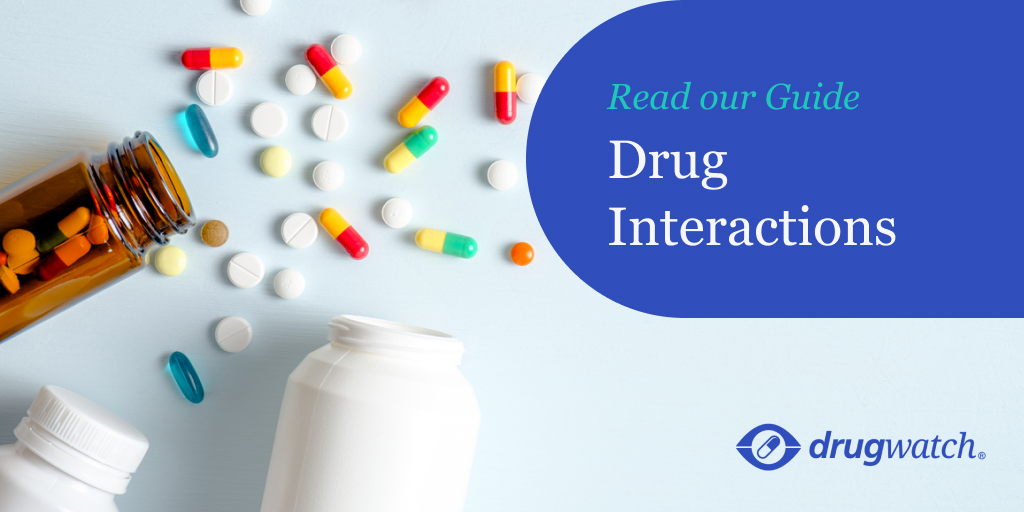
This image is property of www.drugwatch.com.
Conclusion
In conclusion, supplements can interact with prescription medications, potentially leading to adverse effects or reduced effectiveness. Understanding the different types of drug interactions, evaluating potential interactions, and minimizing the risk through proper management are crucial steps in ensuring your safety. It is essential to consult with your healthcare professional, inform them about all the medications and supplements you are taking, and review package inserts and drug labels. By taking proactive measures, you can navigate the complex landscape of potential supplement and medication interactions more effectively.
